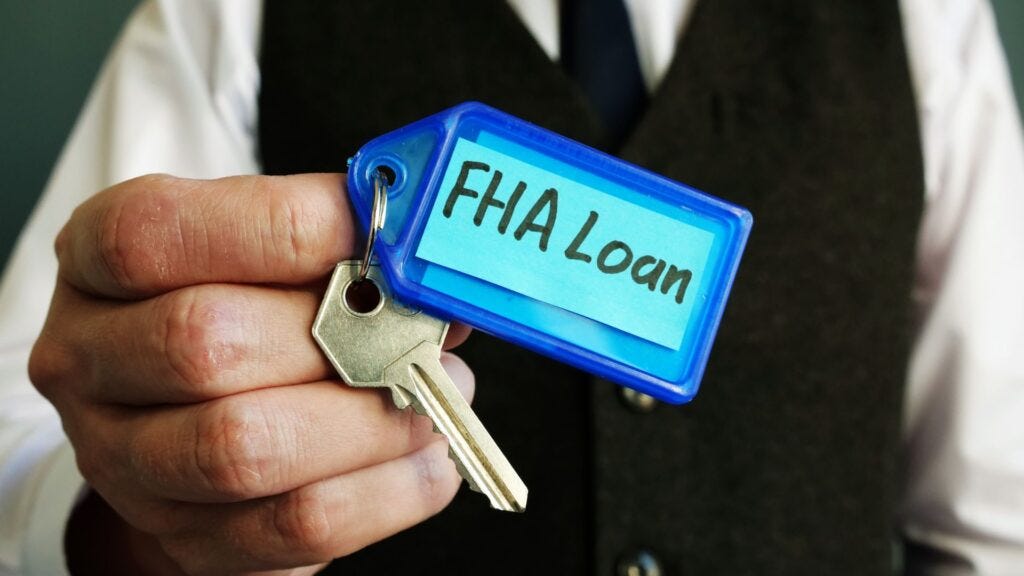The Benefits of FHA Loans, A Comprehensive Guide
Homeownership is a significant milestone, and for many, Federal Housing Administration (FHA) loans serve as a key enabler. FHA loans come with a range of benefits that make them an attractive option for first-time homebuyers and those with unique financial situations. In this comprehensive guide, we’ll delve into the advantages of FHA loans, exploring everything from low down payments to flexible eligibility criteria.
What are FHA Loans?
The Federal Housing Administration, part of the U.S. Department of Housing and Urban Development, plays a pivotal role in facilitating homeownership. FHA loans are government-backed mortgages designed to make housing more accessible, particularly for individuals who may face challenges securing conventional financing.

Overview of the FHA’s Role
FHA’s involvement involves providing mortgage insurance on loans made by FHA-approved lenders. This insurance reduces the risk for lenders, enabling them to offer more favorable terms to borrowers who might not qualify for conventional mortgages.
Low Down Payment Advantage
Explore the Minimal Down Payment Requirements
One of the standout features of FHA loans is the low down payment requirement. Unlike conventional loans that often demand a substantial upfront payment, FHA loans typically allow borrowers to put down as little as 3.5% of the home’s purchase price. This significantly lowers the barrier to entry for prospective homebuyers, making homeownership a more achievable goal.
How FHA Loans Make Homeownership More Accessible
The reduced down payment requirement is a game-changer for those who may not have substantial savings. FHA loans empower a broader spectrum of individuals and families to enter the housing market, fostering financial stability and wealth-building opportunities.
Flexible Credit Score Requirements
Understanding the Flexibility in Credit Score Criteria
Credit scores play a crucial role in mortgage approval, and this is an area where FHA loans shine. FHA is known for being more forgiving when it comes to credit scores, accommodating borrowers with scores that might fall below the threshold for conventional loans.
How FHA Accommodates Borrowers with Varying Credit Histories
While conventional loans may require higher credit scores, FHA loans consider the overall financial picture of the borrower. This flexibility is particularly beneficial for those who may have encountered challenges in the past, allowing them to move closer to homeownership despite less-than-ideal credit histories.
Attractive Interest Rates
Highlighting Competitive Interest Rates
Beyond the advantages of down payments and credit score flexibility, FHA loans often come with competitive interest rates. These rates contribute to the overall affordability of FHA-backed mortgages, making them an enticing option for potential homebuyers.
How FHA Rates Compare to Conventional Mortgages
It’s essential to compare FHA interest rates with those of conventional loans. While rates can fluctuate, FHA loans frequently offer rates that are competitive with or even lower than those of conventional mortgages. This can result in significant long-term savings for FHA borrowers.
Assumable Mortgage Benefits
Explanation of Assumable Mortgages and Their Advantages
One unique feature of FHA loans is their assumable nature. An assumable mortgage allows a buyer to take over the seller’s existing mortgage, including its interest rate and terms. This can be a considerable advantage in certain market conditions.
Why This Feature Can Be Beneficial for FHA Borrowers
For FHA borrowers, the ability to transfer the mortgage to a new buyer can be advantageous. If interest rates rise, having an assumable loan with a lower rate can make the home more appealing to potential buyers, potentially leading to a faster and more profitable sale.
FHA Loans for Home Improvements
Discussing the 203(k) Rehabilitation Mortgage Insurance Program
FHA loans go beyond traditional home financing; they can also incorporate funds for home improvements. The 203(k) Rehabilitation Mortgage Insurance Program enables borrowers to finance both the purchase of a home and the cost of necessary renovations.
How FHA Loans Can Finance Home Renovations
This feature is particularly appealing for those eyeing homes that require a bit of TLC. By rolling renovation costs into the mortgage, FHA borrowers can address both homeownership and necessary improvements with a single, manageable loan.
Frequently Asked Questions (FAQs) About FHA Loans
Q: What is an FHA loan, and how does it differ from a conventional mortgage?
A: An FHA loan is a government-backed mortgage insured by the Federal Housing Administration, offering lower down payment requirements compared to conventional mortgages.
Q: Who is eligible for an FHA loan?
A: Eligibility is open to individuals with a credit score of 580 or higher, although lower scores may be considered, and a debt-to-income ratio within acceptable limits.
Q: What is the minimum down payment required for an FHA loan?
A: The minimum down payment is 3.5% of the home’s purchase price, providing an affordable option for homebuyers.
Q: Can I use an FHA loan for home renovations?
A: Yes, through the FHA 203(k) program, borrowers can finance home improvements and renovations alongside the home purchase or refinance.
Q: How does FHA mortgage insurance work, and can it be removed?
A: FHA loans require mortgage insurance, which may be canceled under specific conditions, such as reaching 20% equity.
Q: What is the FHA Streamline Refinance program, and who qualifies for it?
A: The FHA Streamline Refinance simplifies the refinancing process for existing FHA borrowers, focusing on reducing paperwork and expediting the timeline.
Q: Are there limits on the amount I can borrow with an FHA loan?
A: Yes, FHA loan limits vary by location and are influenced by factors such as the cost of living in a specific area.
Q: Can I use an FHA loan to buy a condominium?
A: Yes, FHA loans can be used to purchase condominiums, provided they meet FHA approval standards.
Q: Are FHA loans assumable, and what does that mean?
A: Yes, FHA loans are assumable, allowing a qualified borrower to take over the existing mortgage, potentially with lower interest rates.
Q: Can I qualify for an FHA loan if I’ve had a bankruptcy or foreclosure in the past?
A: It’s possible to qualify for an FHA loan after a bankruptcy or foreclosure, with specific waiting periods and additional criteria.
Conclusion
In conclusion, FHA loans offer a range of benefits, from low down payments and competitive interest rates to unique features like assumable mortgages and financing for home improvements. Understanding the eligibility criteria and available loan structures empowers prospective homeowners to make informed decisions.




